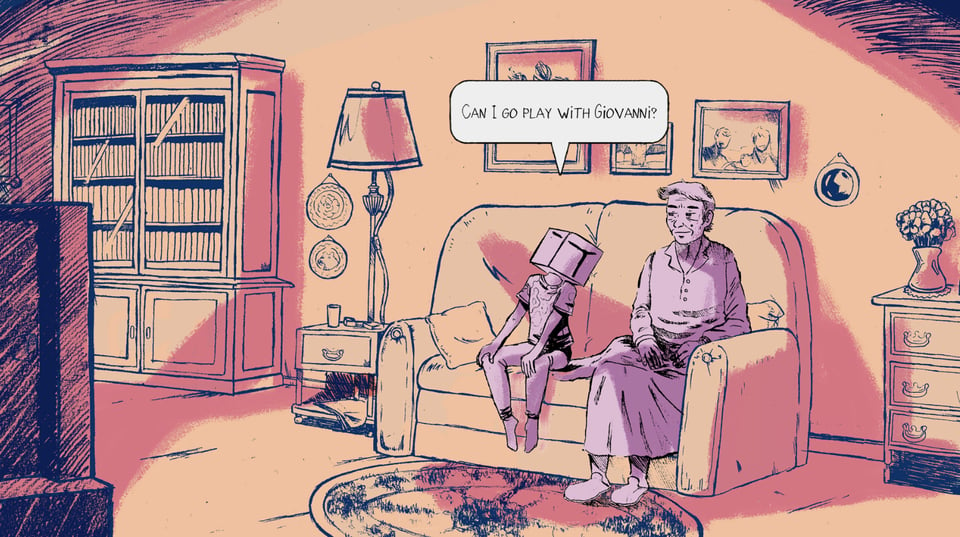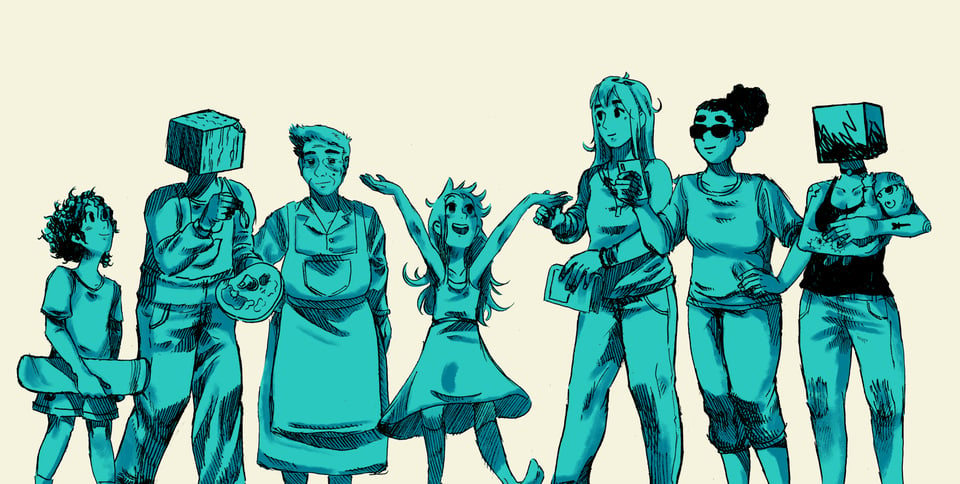Designing Wednesdays - Part 1
How to design a game dealing with child sexual abuse?
That’s a tough question, but as you can guess, something I asked myself quite a lot recently.
This newsletter is the first one of a 3-part series in which I will show you around Wednesdays’ main design choices and try to give you a clearer picture of what the game intends to be.
Part 1: The Angle
Wednesdays is a video game I’ve been working on since 2022.
When people ask me what it’s about, I’m used to playing a little game and ask them:
“What is the worst topic you can imagine for a video game?”
More often than not, they get it on the very first try: Child sexual abuse.
Child sexual abuse, especially when in the family, is a huge taboo. Probably one of the biggest ones. But that didn’t prevent novels, comics or movies from dealing with this specific subject. So why not video games?
There actually might be a lot of reasons, but the most obvious one it that we “play” video games… and that child sexual abuse isn’t something you want to “play” with.

Still. I wanted to make a video game about it.
Because it’s an important topic to me, and, I believe, everyone.
And because video games are what I do.
It might be time to address the elephant in the room: Wednesdays does not show child sexual abuse in any way. Not explicitly, not metaphorically, not at all. I don’t see the point in showing something any sane person wouldn’t want to see (let alone to exist!).
So, that being out of the way, how do you make a game about child sexual abuse?
Video games generally allow you to “play” as someone, to embody a character. Then who should you “play” in such a game?

Should you play the victim?
Certainly not. Video games are all about interactivity, choices. But what defines a victim of child sexual abuse is precisely that they do not have a choice, and even if they “had”, they are not in a situation allowing them to make a free and informed choice (in case anyone needed a reminder: children cannot meaningfully consent to sex). Allowing a victim to make choices would defeat the whole purpose of the game.
Should you play the abuser ?
Ugh… no thanks. While I do believe it might be of some interest if handled exceptionally well, I’m pretty confident no-one wants to play that, and I certainly don’t want to make it.
So who should you play, then?
I felt I only had one option left:
Everyone else.

Wednesdays tells the story of Timothée Parker, who has been sexually abused as a child. But you don’t play Timothée, you play the people who surround him.
His mother, father, grandmother, grandfather, school teacher, childhood friends, highschool crush, ex-girlfriend…
The goal is not to prevent the abuse. It happened already.
The goal is not to encourage Timothée to talk. He’ll do it his own way, in his own time.
The goal is to put together the pieces of the puzzle. To look at Timothée’s story from various angles, and ask yourself: What would you have done? What would you have seen? What could have been different? How?
I certainly don’t have many answers to give on the topic of child sexual abuse, but I do hope I’ll be able to raise a lot of questions.
I hope this first glimpse into the making of Wednesdays made you curious about the game and eager to find out more. In two weeks, we’ll take a look at another big part of Wednesdays’ gameplay: Orco Park, a retro theme park management game whose mascot can’t wait to meet you!
So make sure to subscribe to the newsletter if that isn’t the case already and feel free to share it to your friends.